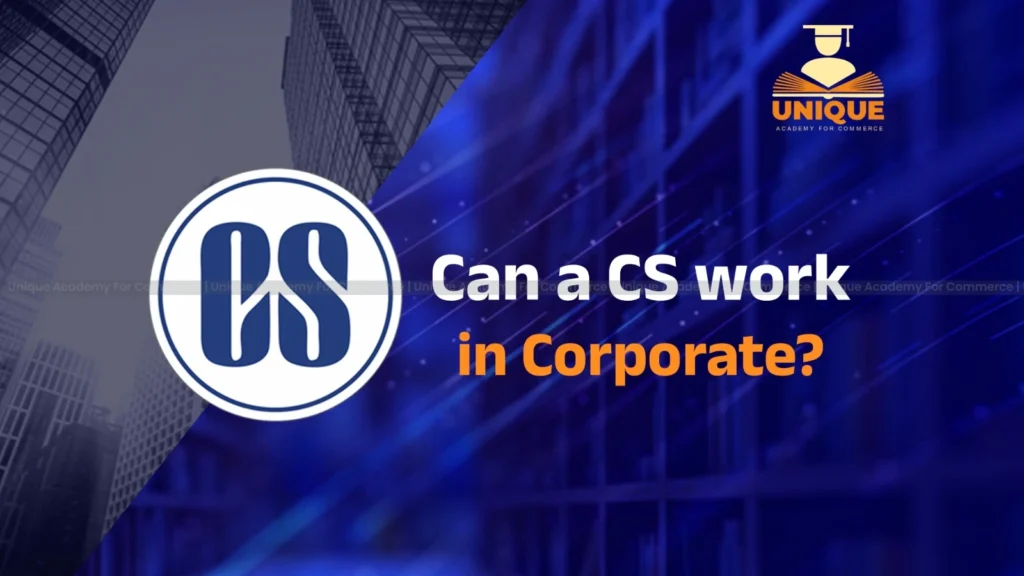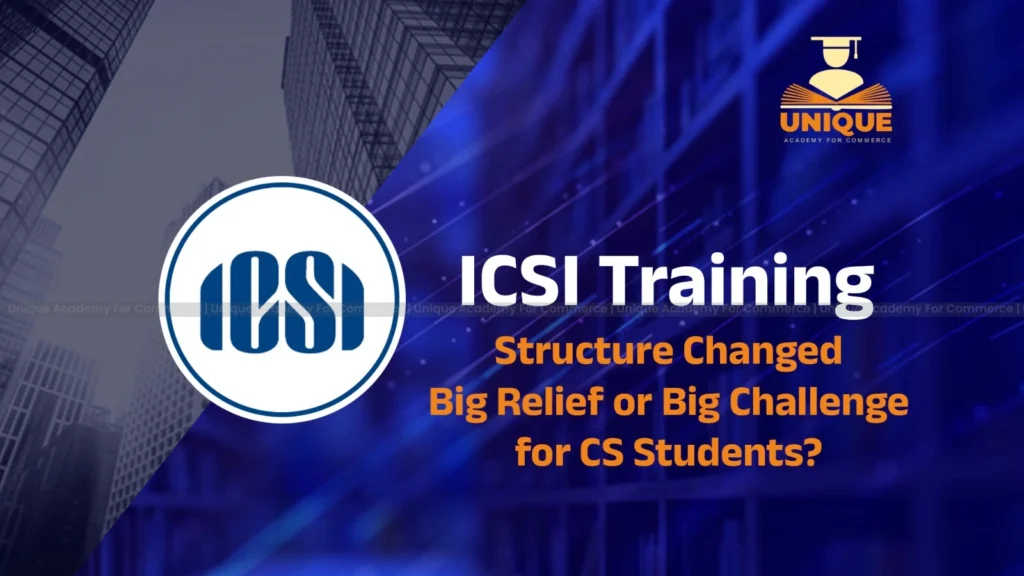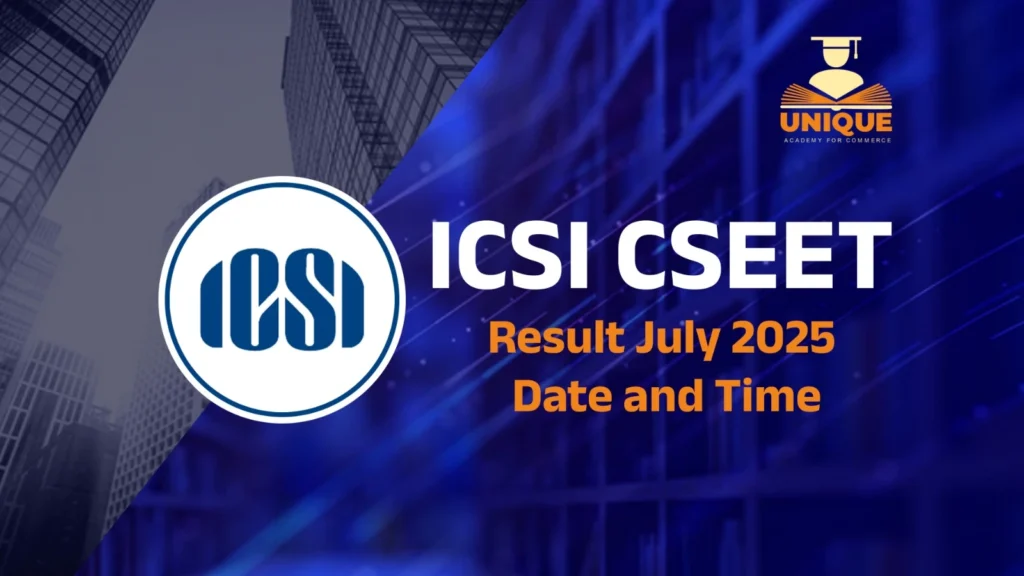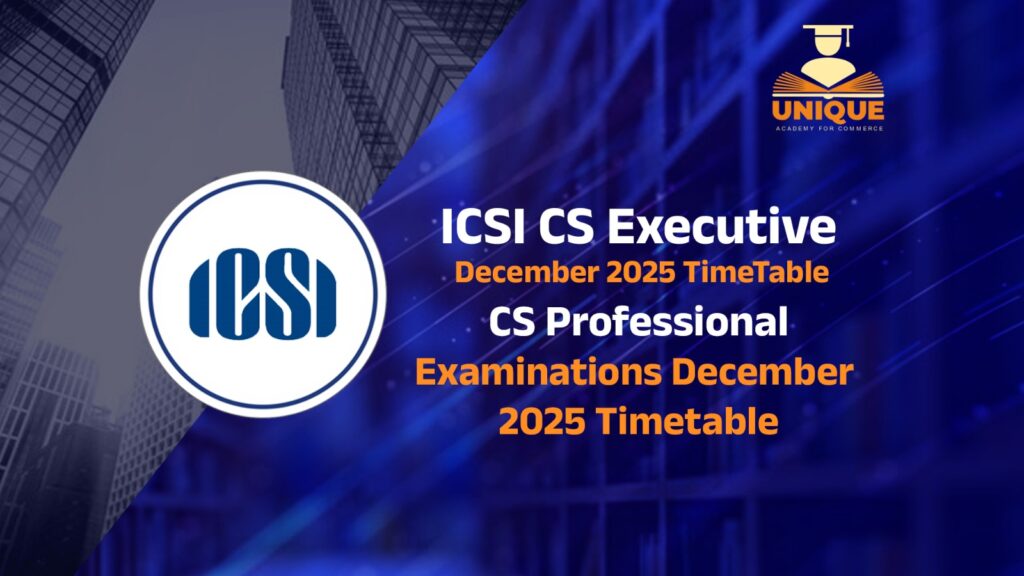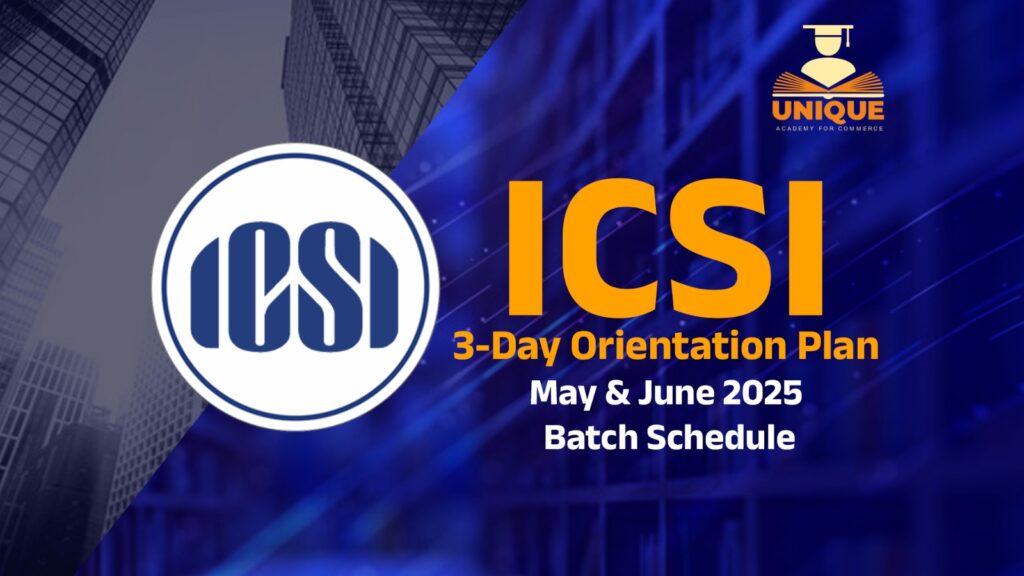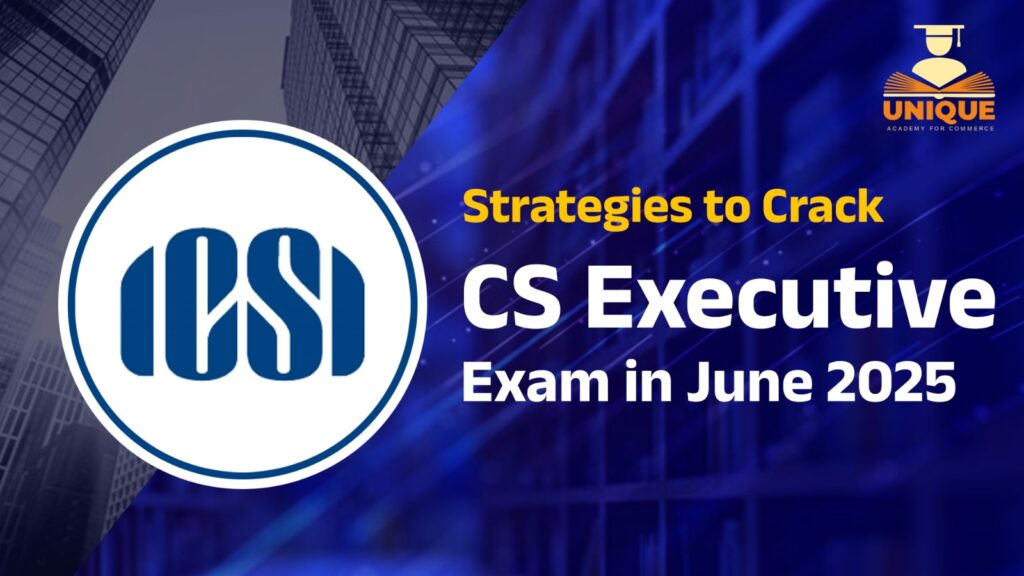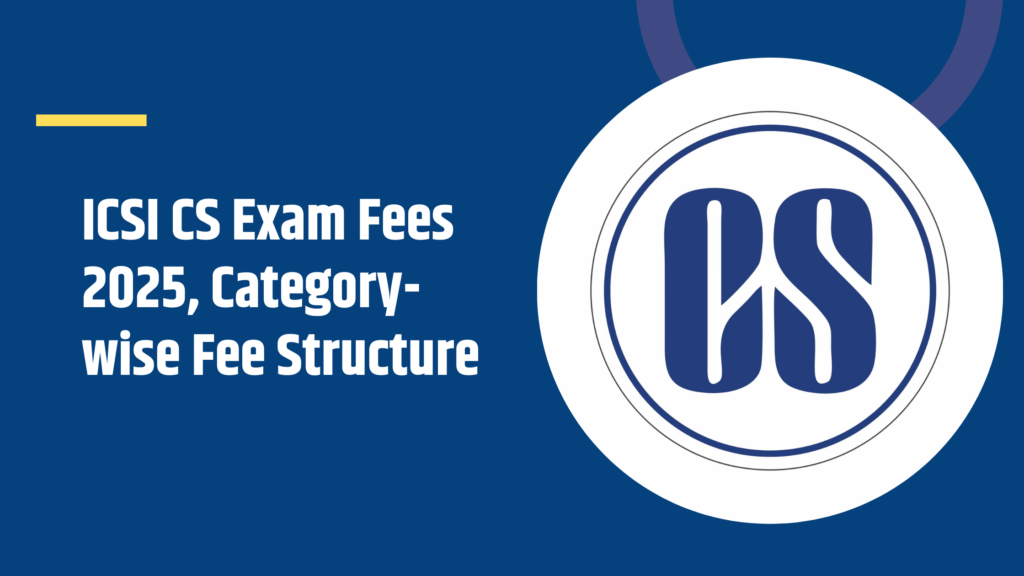How to Prepare CS Executive EBCL Economics, and Business Commercial Law Exam

While preparing for CS Examinations, the students are made familiarised with the basics of business laws. But at the intermediate stage i.e. at the executive stage this subject is introduced for making students aware of the various economic and commercial laws.
Knowledge of legal regulations is not only important for the CS students for clearing the examination but also it is important from the perspective of understanding the economic development of the country. Law and Business are not mutually exclusive subsets.
The legal fraternity has been vested with the core responsibility of understanding the legal framework from every angle so that they can contribute to the economic development of the country.
The main role of the Company Secretary is to act as a Compliance Officer of the company. Considering all the importance which this subject holds for any professional student, this subject becomes one of the most important subject of CS Executive examination.
It is the seventh subject of the Module 2 of CS Executive. As we know that CS Executive is the second stage of the professional course of Company Secretary. The executive stage is basically designed to inculcate skills and competence of executive program passed students.
The reason for inclusion of this important subject in the curriculum is to impart practical understanding of these important financial concepts to the students regarding provisions and applicability of Economic and Commercial laws and impact of dealing with the various business entities during course of business as well as the corresponding effect on the economy of the country.
An outline of Company Secretary Courses and Specialization- Executive Programme Papers
There are 8 papers divided into 2 Modules in CS Executive Programme (wef. 01.03.2018)
Executive Programme [8papers] (New Syllabus – w.e.f. 1st Mar 2018)
| MODULE 1 (4papers) | MODULE 2 (4 papers) |
|---|---|
| 1. Jurisprudence, Interpretation & General Laws | 5. Corporate & Management Accounting |
| 2. Company Law | 6.Securities Laws & Capital Markets |
| 3. Setting Up Of Business Entities And Closure | 7.Economic, Business And Commercial Laws |
| 4. Tax Laws | 8. Financial And Strategic Management |

An Overview of the subject
The subject is divided into three parts i.e. Economic, Business and Commercial Laws. Part I of the subject deals with Foreign Exchange Management &NBFCs , Part II deals with Competition Law and part III deals with Business & Commercial Laws.
ICSI CS Executive New Syllabus Study Material : Module II
| Paper | Coverage |
|---|---|
| Economic, Business and Commercial Laws | To provide expert knowledge in Foreign Exchange Management and NBFCs. To provide expert knowledge in Competition Law To provide working knowledge in Business and Commercial Laws. |
CS Executive Examination Syllabus of this subject
Before planning the study curriculum, first of all we should know the contents of the subject. Following is the arrangement Of Study Lessons in this subject
| Study Lessons Part 1 – Foreign Exchange Management & NBFCs (40 Marks) | |
|---|---|
Module-II Paper-7 Economic, Business and Commercial Laws | 1. Reserve Bank of India Act, 1934 2. Foreign Exchange Management Act, 1999 3. Foreign Exchange Transactions & Compliances 4. Foreign Contribution (Regulation) Act, 2010 5. Foreign Direct Investments – Regulations & FDI Policy 6. Overseas Direct Investment 7. Liberalized Remittance Scheme 8. External Commercial Borrowings (ECB) 9. Foreign Trade Policy & Procedure 10. Non-Banking Finance Companies (NBFCs) 11 Special Economic Zones Act, 2005 |
| Study Lessons Part 1I – Competition Law(25 Marks) | |
| 12. Competition Act, 2002 | |
| Study Lessons Part 1II – Business & Commercial Laws (35 Marks) | |
| 13. Consumer Protection Act, 1986: 14. Essential Commodities Act, 1955 15. Legal Metrology Act, 2009 16. Transfer of Property Act, 1882 17. Real Estate (Regulation and Development) Act, 2016 18. Benami Transaction Prohibitions (Act) 19. Prevention of Money Laundering 20. Indian Contracts Act, 1872 21. Specific Relief Act, 1963 22. Sale of Goods Act, 1930 23. Partnership Act, 1932 24. Negotiable Instrument Act, 1881 |
Objective of introducing this subject in CS Executive course
Considering that the understanding of Economic , Business and Commercial Laws is the core area for the Company Secretaries, it becomes very important for the professionals to be fully aware of various laws and regulations, both for practice and guiding the Board of Directors on related matters and to provide an understanding of certain Economic, Business and Commercial legislations which have direct bearing on the functioning of companies. Also we have to remember that understanding of some of the Economic, Business and Commercial laws thereunder, have a direct bearing on the conduct of corporate affairs.

In the era of plethora of legislations, rules, and regulations, a Company Secretary professional is expected to be well aware of these rules and principles, as these compliances make the functioning and dealing of the company smooth while violations leads to severe penalties.
Strategy for Preparation CS Executive EBCL
The subject of Economic, Business and Commercial Laws is inherently complicated and is subjected to constant refinement through new primary legislations, rules and regulations made thereunder and court decisions on specific legal issues. It, therefore becomes necessary for every student to constantly update himself with the various legislative changes made as well as judicial pronouncements rendered from time to time by referring to the Institute’s journal ‘Chartered Secretary’ and e-bulletin as well as other law/professional journals.
- Understanding the fundamentals of the subject-First of all the students should understand the basic provisions of the all the respective acts, rules & regulations of the subject.
- Understanding the requirements of the subject-First of all the students should understand the requirement of the paper and subject thoroughly. They should understand the role and responsibilities of the company Secretary while dealing with all the various types of situations mentioned in the various acts i.e. understanding the practical implementation of the laws written.
- Dynamic subject-At the same time the student needs to remember that it is not a static subject like accounts or costing rather it involves a lot of dynamic elements because the regulations keeps on changing from time to time.
- Analytical Skills required- It is important for the students to concentrate more on analytical skills rather theoretical concepts. The case laws should be thoroughly understood and be relted to the practical business problems.
- Referring recent case studies as posted on the website of the SEBI-While preparing for the examination, the student is required to refer relevant and important recent examples from current affairs happening in and around business.
- Regular Updation- Update yourself about all the relevant circulars, clarifications, notifications, etc. issued by the MCA, SEBI, Judicial pronouncements, provisions etc on or before six months prior to the date of the respective examinations.
- Fundamental topics of subject-Last but not the least, the students need to be aware of the fundamentals and key provisions, amendments to the Acts, Powers, features, and functions of the provisions of the acts, especially before the examination.
Now we will make a framework for studying and preparing this subject, chapter wise.
| Important topics to be covered | |
| Chapter 1Reserve Bank of India Act, 1934 | Origins of the Reserve Bank of India;Banking Functions;Issue bank notes;Monetary Policy Functions;Public Debt Functions;Foreign Exchange Management;Banking Regulation & Supervision;Regulation and Supervision of NBFCs;Regulation & Supervision of Co-operative banks;Regulation of Derivatives and Money Market Instruments;Payment and Settlement Functions;Consumer Protection Functions;Financial Inclusion and Development Functions; |
| Chapter 2Foreign Exchange Management Act, 1999 – Introduction | Understand the Concept of FEMA; Structure and Overall Schemes of FEMA; Rules and Regulations framed by RBI under FEMA; |
| Chapter 3Foreign Exchange Transactions & Compliances | Concept of Current Account Transactions and Capital Account Transactions;Compliances of acquisition and transfer of immovable property in India and outside India;Provisions of Realisation, Repatriation and Surrender of Foreign Currency;Limits for possession or retention of foreign currency or foreign coins; andProcedure for Adjudication, Appeal and Compounding. |
| Chapter 4Foreign Contribution (Regulation) Act, 2010 | Regulation of foreign contribution, foreign Source and foreign hospitality;Accounts, Intimation, Audit and Disposal of Assets; andInspection, Search and Seizure. |
| Chapter 5Foreign Direct Investment – Regulation & Policy | Eligible Investors under FDI;Entry Routes for Investment i.e. Automatic Route, Government Route, Competent authority etc;Instruments for Investments i.e. equity shares/fully, compulsorily and mandatorily convertibledebentures/fully, compulsorily and mandatorily convertible preference shares etc;Prohibited and Permitted Sectors;Conditions of FDI in major sector i.e. E-commence activity, Insurance etc.;Conversion of ECB/lump sum fee/royalty etc. into Equity;Provisions of FDI with respect to Issue of Rights/Bonus Shares& Employees Stock Option Scheme (ESOPS)/Sweat Equity;Acquisition of Shares under Scheme of Merger/Demerger/Amalgamation;Modes of Payment allowed for receiving FDI in an Indian Company;Reporting of FDI i.e. Reporting of Inflow/Issue of shares/Transfer of shares etc; andConditions and procedure for establishment of branch office (BO)/ liaison office (LO)/ project Office (PO) in India. |
| Chapter 6Overseas Direct Investments (ODI) | Two way approach to the approval of direct investment, i.e. Automatic Route and Approval Route;Proposal for making ODI under approval route and Prior RBI approval;Financial Commitment;Eligibility to make ODI under the Automatic Route;Permissible Sources for Funding Overseas Direct Investment;Acquisition/Sale of Foreign Securities by Resident Individual in India; andObligations of Indian party which has made direct investment outside India etc. |
| Chapter 7Liberalized Remittance Scheme (LRS) | Overview of Liberalised Remittance Scheme;Permissible Capital Account Transactions and Current Account Transactions by an individual under LRS; andRemittance facilities to Persons other than Individuals |
| Chapter 8External Commercial Borrowings (ECB) | Overview of ECB, Tracks of ECB i.e. Track I, Track II & Track III and kinds of ECB;Routes available for raising ECB;Provisions of Conversion of ECB into equity;Procedure for raising ECB; andReporting Requirements i.e. In case of Changes in terms and conditions of ECB, Conversion of ECB into equity etc. |
| Chapter 9Foreign Trade Policy and Procedure | Provisions regarding Imports and Exports;Importer-Exporter Code (IEC) Number/E-IEC;Required Documents for Export/Import of Goods From/into India;Merchandise Exports from India Scheme (MEIS);Service Exports from India Scheme (SEIS);Duty exemption / remission schemes;Export oriented units (EOUS);Electronics Hardware Technology Parks (EHTPS);Software Technology Parks (STPS);Bio-Technology Parks (BTPS); andImports and related policies. |
| Chapter 10Non-Banking Finance Companies (NBFCs) | Types of NBFC;Activities of NBFCs;Compliances by the NBFCs;Deposit Accepting and Non-deposit Accepting NBFCs;Core Investment Company;Systemically Important Core Investment Companies; andPeer to Peer Lending. |
| Chapter 11Special Economic Zones Act, 2005 | Establishment of Special Economic Zones;Approval and Authorization to Operate SEZ;Setting up of Unit; andSpecial Economic Zone Authority. |
| Chapter 12Competition Act, 2002 | Competition Policy;Anti-Competitive Agreements;Abuse of Dominant Position;Overview of Combination and Regulation of Combinations;Competition Advocacy;Competition Commission of India; andRight to legal representation. |
| Chapter 13Consumer Protection Act, 1986 | Consumer Protection in India;Rights of Consumers;Consumer Dispute Redressal Forums; andNature and Scope of Remedies. |
| Chapter 14Essential Commodities Act, 1955 | Essential Commodities;Powers of Central Government;Authorities responsible to administer the Act;Seizure and Confiscation of Essential Commodities; andOffences by Companies. |
| Chapter 15Legal Metrology Act, 2009 | Standard weights and measures;Power of inspection, seizure;Declarations on pre-packaged commodities; andOffences and penalties. |
| Chapter 16Transfer of Property Act, 1882 | Understand types of Properties;Know Rules relating to Transfer of Property;Properties which cannot be transferred;Lis Pendens; andUnderstand Provisions Relating to Sale; Mortgage, Charge, Lease. |
| Chapter 17Real Estate (Regulation and Development) Act, 2016 | Registration of Real Estate Project;Real Estate Agents;Real Estate Regulatory Authority;The Real Estate Appellate Tribunal; andSpecimen Agreement for Sale between the Promoter and the Allottee; Due Diligence Reporting. |
| Chapter 18Benami Transaction Prohibitions (Act) | Benami Property;Benami Transaction;Prohibition of Benami Transaction; andAdjudication of Benami property. |
| Chapter 19Prevention of Money Laundering | Problem and adverse effect of money laundering;Methods of money laundering;Offence of money laundering; andAttachment, adjudication and confiscation |
| Chapter 20Indian Contracts Act, 1872 | Essential elements of a Valid Contract;Indemnity and Guarantee;Bailment and Pledge; Law of Agency; E-Contract; Landmark judgments |
| Chapter 21Specific Relief Act, 1963 | Specific reliefs and defense; specific performance and defense;unenforceable contracts; Rescission of Contracts; Cancellation of Instruments; DeclaratoryDecrees; Preventive Reliefs. |
| Chapter 22Sale of Goods Act, 1930 | Essentials of a Contract of Sale; Sale Distinguished from Agreement to Sell,Bailment, Contract for Work and Labour and Hire-Purchase; Conditions and Warranties;Doctrine of Caveat Emptor; Performance of the Contract of Sale; Landmark judgments. |
| Chapter 23Partnership Act, 1932 | Rights and Liabilities of Partners; Registration of Firms; Dissolution of Firms and Partnership;Landmark judgments |
| Chapter 24Negotiable Instrument Act, 1881 | Negotiable Instruments and Parties; Material Alteration;Crossing and bouncing of Cheques; Dishonour of Cheques & its Remedies; Presumption of Law as to Negotiable Instruments; Landmark judgments. |
Before reading further check out these posts:
Study Plan
1. Ensure complete understanding of the CS Study Material
2. Start with a proper Time Table
3. Setting targets
4. Analysing the actual performance every week
5. Never Do following-
- Never go with selective topics
- Never refer old study material
- Try to finish your revision beforehand
Some reference books
The study material released by ICSI is enough for CS Executive Exam preparation. Still students can refer following books for preparation of CS Executive Exam which can help them in proper update and practice. These books have been taken as a reference from ICSI also.
1. Snow White: Foreign Exchange Management Manual.
2. Statutory Manual
3. Statutory Guide for NBFCs with Law Relating to Securitisation and Reconstruction of Financial Assets- Taxmann (2017)
4. Law & Practice Relating to Special Economic Zones- Taxmann Publications Private Limited
5. T. Ramappa: Competition Law in India – Policies, Issues, and Developments; Oxford University Press, New Delhi.
6. Guide to Competition Law- Containing Commentary on the Competition Act, 2002; MRTP Act, 1969 & the Consumer Protection Act, 1986 (Set of 2 Volumes)- S.M.Dugar, revised by Arijit Pasayat, Sudhansu Kumar (2016)
7. S M Dugar’s Guide to Competition Act, 2002- Author : S.M.Dugar, revised by Sudhansu Kumarwith a foreword by Dhanendra Kumar (2018)
8. Consumer Protection Law and Practice- Dr. V.K. Aggarwal
9. Commentary on Consumer Protection Act, 1986- Y.V.Rao, with a Foreword by Justice I. Venkatanarayana (2017)
10. Essential Commodities Act, 1955 (Act No. 10 of 1955) (Lawmann’s) (2017)- Lawmann
11. The Legal Metrology Act, 2009- Virag Gupta & Gaurav Pathak (2018)
12. The Transfer of Property Act, 1882 with Exhaustive Case Law- Universal’s Concise Commentary (2017)
13. Real Estate (Regulation and Development) Act 2016 – Taxmann (2017)
14. Prohibition of Benami Property Transactions Act 1988 (Bare Act) (August 2016 Edition)- Taxmann
15. Law on Prevention of Money Laundering in India (2017)- M C Mehanathan
16. The Indian Contract & Specific Relief Acts (Set of 2 Volumes) (2017)- Pollock and Sir Dinshaw Fardunji Mulla
17. Sale of Goods Act, 1930 (Lawmann’s)(2017)- Lawmann
18. Indian Partnership Act, 1932 (Lawmann’s) (2017)- Lawmann
19. The Negotiable Instruments Act (2016)- Universal Law Series







